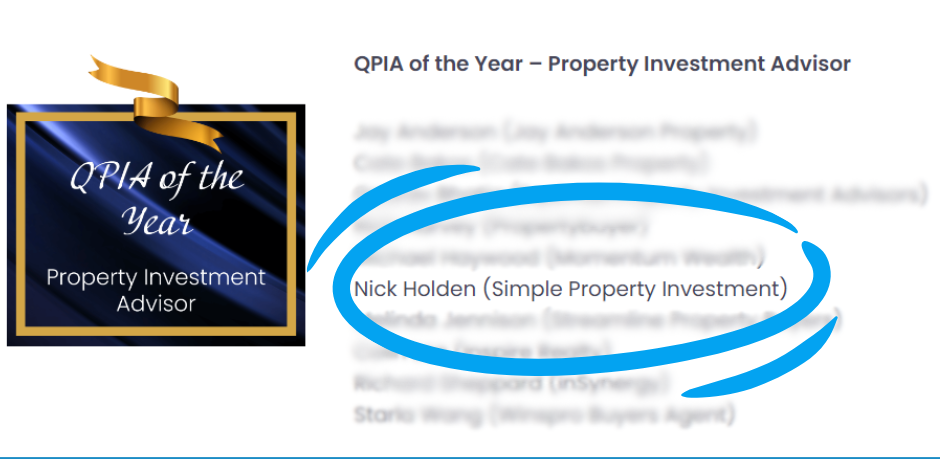It can be tough to stick to a budget. But like losing weight, there are proven ways to set up – and stick to a plan.
Budgets can be depressing can’t they?
Like exercise and healthy eating…
Yet to get lusciously toned – and avoid the humiliation of our kids outrunning us all the time – we know exercise and good food choices will help us get there.
But that doesn’t drag us out of bed to go for a run at 6am.
It doesn’t dredge up the willpower to say ‘No thanks’ to mum’s scrumptious cheesecake.
It doesn’t stop us after 1 glass of bubbly (or beer) on a rare, kid-free, Uber-driven night out on the town.
We need extraordinary incentives to make these extraordinary choices.
Let’s explore the 11 tips to cut the flab and make your budget stick.
Budget Tip 1: Do it for yourself
What’s YOUR why?
Maybe it’s:
To run around with the kids without falling in a heap after only 5 minutes.
A tropical holiday where you get nannies, your own chef, a beachfront chalet, and nothing to do but get a pedicure and wonder what cocktails to try out today while your kids run silly in the resort’s own wet n wild adventure park.
The ultimate driving pleasure of your sexy, shiny Maserati hugging the curves of the Great Ocean Road. The warm breeze gently caressing your hair and whispering sweet nothings into your ear while the waves sparkle and dance beside you…
Do it for yourself. It comes down to one simple thing: how badly do you want it?
(And if that doesn’t do it for you, then do it for the after selfie!)
Budget Tip 2: Take baby steps
When you’re eager to cut the flab asap, it’s easy to dream big. Aiming to lose 10 kg every 2 weeks, or running 20 kms on your first week, is a recipe for disaster.
Instead, if you aim to lose 2 kgs every 2 weeks and power walk 5 kms before you attempt to run, it becomes easier to begin. If you’re not into gyms, mix it up. Go out for a bushwalk and enjoy the great outdoors.
With your budget, you might cut down from 3 grocery trips a week, to 1.
Take baby steps: The secret of getting ahead is getting started.
Budget Tip 3: Create habits
It’s much easier to create change when you include new activities into your routines. So we don’t have to think about it. For example, climb stairs rather than take the elevator. Go to that boxing class every Wednesday after work. Head out for jog on the beach every weekend.
With our budget, you might ride bikes instead of taking the car to save on petrol (and get fit!). You might review mobile plans every year to make sure you’re getting the best deal. Or get creative for a cheap and cheerful Christmas. You’ll be surprised at how small changes can add up to huge savings (like 20K!).
Creating habits makes it easier to set, forget, and make change happen.
Create habits. Crunch, curl, coffee, repeat…
Budget Tip 4: Treat yourself
Working out every week and ticking off your goals can be motivating – but it’s hard to stick with it without giving yourself a pat on the back regularly. That could mean getting a massage or a sweet treat to reward you for your efforts.
Same applies to your budget. Saved an extra $100 last month? Take your special half out fine dining or buy those shoes you’ve been eyeing off for months.
Treat yourself. Embrace the pace of your own journey.
Budget Tip 5: Find a buddy
It’s much harder and more hassle to bail out on an exercise session with a buddy than it is to turn up and just do it!
Share your budget goals with someone else regularly – your partner, your best mate, even your kids. You’re more likely to stay accountable when you have someone to clink glasses with to celebrate your wins.
Find a buddy.
Budget Tip 6: Be kind to yourself
Expect to get frustrated. Expect to feel like giving up. Expect it will be hard. If it was easier, everyone would be fit and toned. Imagine how you’d encourage a friend if they were down on themselves.
When your budget blows out, you might say:
‘You’re doing your best, and it’s natural to blow the budget sometimes.’
‘Don’t worry about it. Let’s plan how to get back on track.’ or
‘Remember that $100 you saved last month?’. ‘You’ve got this!!’.
Be kind to yourself. Difficult roads often lead to beautiful destinations.
Budget Tip 7: Mix it up
Doing gym twice a week and going for a run twice a week can get pretty boring week after week. So what can be done to mix it up?
Mix training with weights, interval training, outdoor run – and throw in a random session of boxing, pilates, or even rockclimbing! This works out different muscle groups and is sure to keep life interesting.
With a budget, it’s easy to get demotivated by the many things you ‘can’t’ do. Instead, be more creative with what you can do. Trade a cafe meal for a picnic outdoors. Regularly give yourself reward amounts to spend on whatever you like. Find great classes online to learn what you’ve always wanted to learn.
Mix it up. The body achieves what the mind believes.
Budget Tip 8: Find your secret sauce
Some may explore juice diets. Others say no to carbs. Some swear by exercise in the morning. Others prefer exercising at night. What’s the best way?
There are millions of health and fitness routines.
What may suit one person, may not suit you. Find tips. Take advice. But do what works best for you.
Common suggestions for saving include automatic direct debiting into savings. And cutting up your credit cards.
But perhaps you don’t like automatic direct debiting in case you get charged for not having the money in there. And perhaps you like your credit card for frequent flyer points.
So set yourself a reminder to transfer a percentage of every pay into savings. And only use your credit card when you can transfer cash to it immediately.
Find your secret sauce – and stick to it. The best project you’ll ever work on is YOU.
Budget Tip 9: Keep it real
When starting a new exercise routine, it’s unrealistic to expect 1-hour workouts, 5 days a week if you’ve never exercised more than 20 minutes a week. By the end of 3 weeks, you’d be tired, depressed, and probably ready to throw in the towel.
But say you did 10-minute workouts the first week, 15-minute workouts the second week, and 20 minutes workouts the next week. After the 3rd week, when you’re not huffing and puffing to the train station anymore – and you can more easily pick up your 20kg child – would you be more motivated to keep exercising?
To ease into a budget, you might cut back on takeaway: 3 times instead of 5 times a week, for instance.
Keep it real. No matter how slow you go, you’re still lapping everybody on the couch.
Budget Tip 10: Track it
To see results consistently, it helps to track it. When out for a run, you may use a running app to track how many kms you’ve run, your heart rate, and how many calories you’ve lost.
To see how much you’ve eaten – and how well (or not) you’ve eaten each day, it helps to list meals, snacks, and portions. So you can review and adjust what you’re doing. To make sure you’re on track to lose weight – or training for a fun run.
To help you keep on track financially, there are many budget programs and apps out there (check out ASIC’s Money Planner tool). Often all you really need is an Excel spreadsheet. Keep it simple. Do you spend more than you earn?
When it’s easy to see what you’re earning and spending, you can adjust your habits and tweak your budget to keep you on track.
Track it. It always seems impossible until it’s done.
Budget Tip 11: Ask for help
Many people have no idea what they’re doing in gyms. They look like they do. They’re confident. They wear the right clothes. And look buff. Yet they’re one deadlift away from a back injury. One lat pulldown away from a neck injury.
They don’t realise their technique is off – until it’s too late. Wasted time, effort, and painful injuries could be avoided with a quick fitness assessment and technique demonstration by a qualified trainer at the start.
Do you ever wonder how that person can afford such a big house in that suburb? Or how much we’ll need to get our kids through school and have a decent retirement?
Perhaps that person actually has a massive debt and can’t afford that house in that suburb. Maybe if we fudge it, we’ll be fine when we’re 65. We have plenty of time!
Don’t be fooled by what other people seem to be doing. Save yourself precious time and steer your boat, rather than drifting wherever the wind blows, hoping to land on your personal paradise.
Get recommendations of reputable professionals to set your budget on course.
Ask for help. Teamwork makes the dream work.
Summary: cut the flab and stick to your budget
Like working out hard, budgeting is not always sexy. When you start out, you might be red-faced, puffing like your lungs are about to burst after a 10 minute workout. Ready to give up.
But hang in there. Keep your eye on your prize.
- Find your why: make it meaningful.
- Take baby steps at the start and mix things up to keep life interesting.
- Share your journey and be kind to yourself when the going gets rough.
- Change – through routine – will transform into habit.
- When you find your secret sauce, stick with it.
Don’t think about the start of the race, think about the ending – Usain Bolt
Dream more. Think less.
Spend less. Live more.
Wondering how to make your hard-earned savings stretch further?
Find out what property investment is all about. Download your E-book: Property Investment 10 Essential Considerations.












